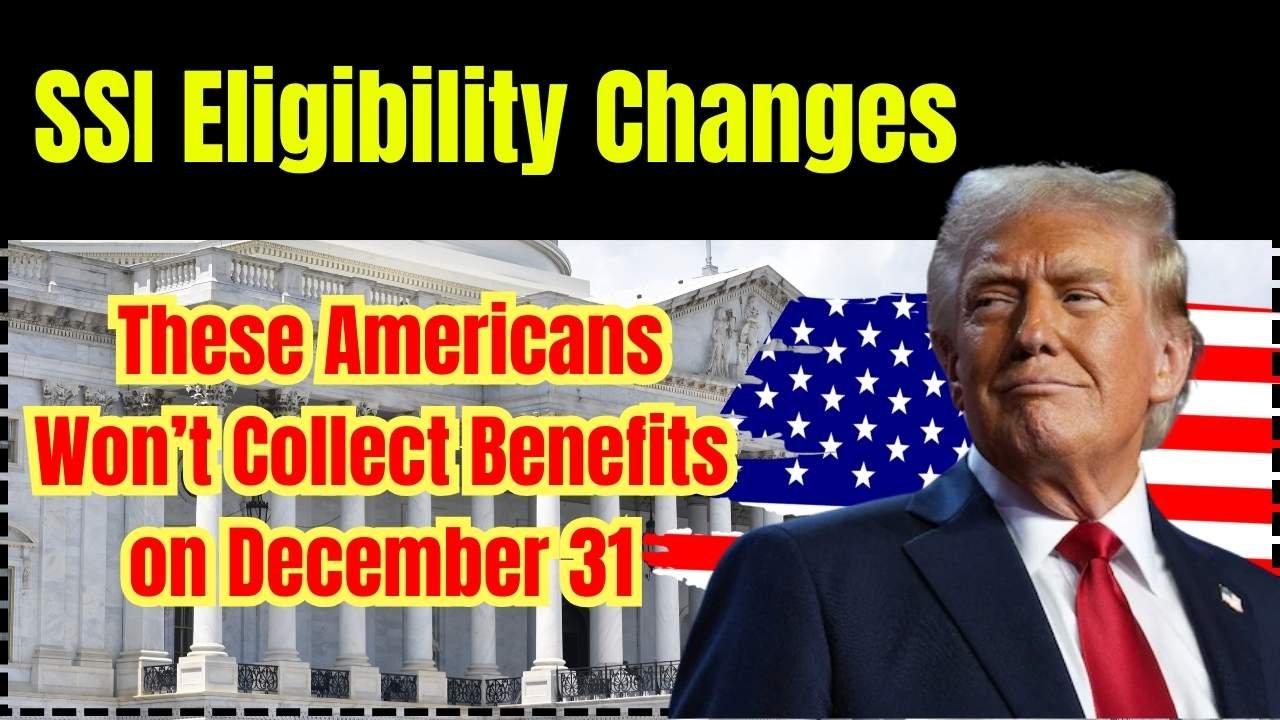SSI Eligibility Changes: What You Need to Know So you think SSI is a lifeline for millions of Americans, especially those with disabilities, older adults and low income folks. But recent SSI eligibility changes and payment schedules are causing confusion as we head into the end of the year. Here’s what you need to know.
SSI Eligibility Changes
| Topic | Details |
|---|---|
| December Payment Date | No SSI payment will be issued on December 31 due to advanced payment in November. |
| Eligibility Adjustments | Rental subsidies and food assistance no longer reduce SSI benefits. |
| Policy Enhancements | Updated rules broaden household definitions and expand eligibility. |
| Next Steps | Contact SSA or visit Social Security Administration for personalized advice. |
No SSI Payment on December 31 – Why?
So why is there no SSI payment on December 31? Here’s the answer:
- December Payment Date: The SSA made an advance payment in November so there won’t be a separate payment at the end of December.
- January Adjustment: Since January 1, 2025 is a federal holiday, the January payment will be issued early – on December 29, 2024.
This will ensure timely payments but can be confusing if you’re used to getting a check every month. While the total number of payments remains the same, you need to plan your budget accordingly to avoid gaps.
Budgeting Tip: Mark your calendar with the new payment dates and adjust your spending accordingly.
Key Eligibility Changes to Know
The Social Security Administration (SSA) has made some changes to make SSI benefits more accessible and fair. Here are the details:
- Food Assistance No Longer Counts Against You
Before, if someone gave you groceries or food assistance, it could reduce your SSI benefits. As of September 2024, this type of help no longer counts against you.
Example: If a family member buys groceries for you, your SSI check won’t decrease under the new rule. This is a big deal for people who rely on informal support networks to get by.
Why It Matters: This change means you get your full benefits without penalty for accepting non-cash help. It reflects real life where community and family support is key.
- Rental Subsidies Won’t Reduce Your Benefits
The SSA has also changed how rental assistance affects SSI benefits. Under the new rules, the SSA will provide the service member with the service. Under the new rules, the SSA will provide the service member with the service. Under the new rules, the SSA will provide the service member with the service. Under the new rules, the SSA will provide the service member with the service. Under the new rules, the SSA will provide the service member with the service. Under the new rules, the frequency of rare words is low, with most vocabulary being common and easily understood.
- Household Expansions
The SSA has expanded the definition of a public assistance household. Now, if one member of your household receives public assistance (like SNAP benefits), others in the household may be eligible for SSI too.
Impact:
- More families and multi-generational households can get benefits.
- Rules are simpler to determine eligibility.
Example: If a parent in your household gets SNAP benefits, their child may now qualify for SSI under the new rules. This recognizes how household finances are connected and tries to provide more comprehensive support.
Takeaway: Check your household’s eligibility—this could mean more people in your family get benefits.
What You Can Do to Get Ahead?
Navigating these changes can feel overwhelming but taking a few proactive steps can make all the difference:
- Check Your Benefits Online
Log in to your account on the SSA website to see your payment schedule, amounts and eligibility. The portal has all the details and allows you to update your personal info to avoid delays.
- Get Expert Advice
Reach out to:
- Local SSA offices for personalized help.
- Community organizations that specialize in disability and aging support. Nonprofits like AARP or local disability rights groups often offer free help to understand these changes.
- Plan Your Budget
With changes in payment timing, you need to plan ahead. Create a budget that accounts for overlaps or delays in December.
- Explore Other Benefits
If your household income has changed because of the new SSI rules, consider applying for other programs like SNAP, Medicaid or utility assistance. Local food banks and state specific benefits can also supplement your income.
- Understand the Appeal Process
If your benefits are reduced or denied, don’t panic. You have the right to appeal. The SSA has clear guidelines for appealing and many community organizations offer free legal aid to help you through the process.
FAQs About SSI Eligibility Changes
Q1: Why didn’t I get an SSI payment in December?
December 1, 2025 is a federal holiday so the January payment was issued on December 29, 2024.
Q2: Will rental assistance still count as income?
No, SSA has updated policies to minimize the impact of rental subsidies on SSI benefits so recipients in subsidized housing won’t be penalized.
Q3: How do I know if I’m still eligible under the new rules?
Check the SSA website or your local office to review your case. Eligibility has been expanded so even if you were previously not eligible it’s worth checking again.
Q4: Can I appeal if my benefits are reduced?
Yes, you can appeal. Check the SSA website or contact a legal aid organization that specializes in SSI cases.
Q5: Are these changes permanent?
The updates to food assistance and rental subsidies are part of bigger changes to make SSI more fair. While there’s no indication these rules will be reversed stay up to date through the SSA website.
